Neil Gaiman’s MasterClass is the one I’ve been most excited about since it was announced. Neil has spoken endlessly in interviews about the art of storytelling. He’s always been an incredibly compelling and motivating speaker. And yet I was worried that Neil Gaiman’s MasterClass wouldn’t live up to the hype I’d built up in my mind. After all, it’s Neil Gaiman…
My worries were obliterated immediately and the Neil Gaiman Teaches the Art of Storytelling MasterClass quickly became one of the best masterclasses I’ve taken to date (and, thanks to my All Access Pass, I’ve taken a lot).
If you’re a writer of any kind, or simply a fan of Neil Gaiman, this MasterClass is an absolute must. I’ll get into what I personally enjoyed and took away from it in this review.
Neil Gaiman Teaches the Art of Storytelling MasterClass Review
This MasterClass is all about Neil revealing the collection of tips and tricks in his literary toolbox.
It’s suited for writers at every stage in their development, from first time writers right up to seasoned veteran wordsmiths.
You get a solid grounding in the fundamentals of storytelling and writing in the first half of the course: character developing, creating conflict, determining your story’s main themes, and so on.
Then the rest of the course gets more involved with advanced fiction techniques and more practical advice for the writer’s life. Along the way you get a ton of different case studies from comics, short stories, novels, and more. You also get great insight into Neil’s signature genre-defying storytelling style.
As part of this MasterClass writing assignment, you’re encouraged to keep a dedicated notebook for the course for working on exercises and assignments that build upon each other.
The accompanying workbook’s exercises are broken into three sections:
- One is ‘writing exercises’ and can be used by any type of writer no matter if they’re working on a project or not so you can practice Neil’s tools.
- Another section is ‘for your novel’ and is to help writers just starting a novel or currently undertaking a long piece of work. If you’ve finished your novel, this section is aimed at helping you strengthen it.
- And the third section is comprised of reading exercises to get you reading like a writer.
As an aside, the accompanying notebook is easily one of the best I’ve seen in the MasterClass catalogue (and they’re generally always amazing) and is basically an entire writing manual in itself. I’m very impressed with it and happy to be spending a lot of time going through it.
The MasterClass openings are always different, perfectly tailored to the instructor, and never fail to get you pumped up. But the introduction to the Neil Gaiman MasterClass was something else.
One word: magical.
If there was any doubt that I was going to binge this class, that doubt evaporated within the first minute.
Obviously it comes as no surprise that Neil Gaiman is such a compelling teacher. He’s been teaching for the last five years at Bard College as Professor of the Arts.
Each of those classes, Neil only has 25 or 26 students for the year. I know what you’re thinking! I’m probably even more jealous of those lucky 25 than you. But now, thanks to MasterClass (and this was Neil’s exact rationale for doing MasterClass), we can be part of that intimate classroom.
Neil says right out in the opening that he is saying the exact same things he says to them but now he can do it on a much bigger scale. What a wonderful world we live in that we can have access to this kind of teaching!
Neil has always tried to help as many people as possible with their writing questions, whether that be online in the form of Twitter or his blog or in interviews, but now he has decided that MasterClass is the most efficient way to say everything he has to say on the subject of writing.
I wasn’t even halfway through Neil Gaiman’s first module, ‘Truth in Fiction’, when I realised that I’m completely hypnotised by him. His way of speaking, his gorgeous tone of voice, his deep foray into the big fundamental questions of fiction writing, all swept me away.
This most fundamental of starting points is furnished with plenty of anecdotes from when Neil was writing Coraline. What’s wonderful about these anecdotes and the talk of theory mixed in is that it makes you incredibly excited to start writing now.
It feels like Neil is sprinkling magic fairy dust over you as he talks.
You want to keep listening, but every sentence he says sparks a new idea, then another, then ten more, and you have to pause to jot down these ideas and sometimes these ideas turn into stories and time slips away from you.
You’ll really want to make sure you’ve got some time to really enjoy this MasterClass, because it’s such a treat. Sure, it’s personal and professional development and it’s helping you enhance the craft you love so much, but it’s also fantastic ‘me-time’ and you can really get lost in the magic of it all.
What I love so much about the way this masterclass started is that Neil actually demonstrates the tools as he’s teaching them to you and you don’t even realise it until at the end you go… “Wow. What a great story… Wait a minute…” Neil is teaching you how to tell stories by telling you stories. Wonderful stuff.
I particularly loved Neil’s discussion on how to respond to stories on a different level, how to stop reading stories as an audience (e.g. I like this, or I don’t like this) but how to read stories as a craftsperson, someone who is looking to build stories of one’s own. I also loved Neil’s discussion on honesty, using Coraline and The Ocean at the End of the Lane as case studies.
And the exercises accompanying this module, particularly the one requiring us to read certain essays and respond to them “showing too much of yourself” too were superb.
I was really moved by the lesson on sources of inspiration, which is all about building your “compost heap”.
- Check out the Neil Gaiman MasterClass here.
I’m naturally always interested in hearing where my heroes get their inspiration, but I’m also aware that talk of inspiration can quickly become wishy-washy, woo-woo, and also cliche with the same tired advice repeated again and again. Not so in this class.
Neil gives hands-on practical tips for finding inspiration that you can apply immediately. And I did. Although I binged this masterclass most of the way through, telling myself I’d go back again slowly and do the exercises in their order, I also couldn’t helping pausing the modules frequently and following Neil’s advice, getting started on his assignments.
Actually, I told myself I wouldn’t be writing fiction for most of this year because I have too many other things to focus on. But there’s this one assignment in the inspiration module about reengineering fairy tales that just took me away and I couldn’t help staying up and completing it – and I had so much fun.
I can’t tell you how joyful I felt returning to fiction in this capacity right when I thought I was going to stay away from it for so long.
And when I returned from the exercise, I got to hear Neil’s answer to that great big question, the question so many authors avoid answering, “Where do you get your ideas from?”
The module on finding your voice as a writer was the advice I wished I’d had when I was younger. Obviously the advice is perfect for anyone in their writing career, but I believe it’s particularly important that you internalise the message in this module as soon as possible.
To be quite honest, I only recently internalised this message and that was after years of writing – I’d love to see what would have happened if I’d been cognisant of this advice from a much earlier stage in my writing career. But better late than never! And it’s incredibly refreshing and motivating advice that you can’t help but push forward from it.
As Neil says in this lesson, if you looked at a dozen short stories by him and half a dozen of his novels, they’re all different.
Different genres, different word choices, different themes.
They could almost be written by completely different people.
But they’re all obviously written by Neil Gaiman. That’s voice. It’s a uniformity of attitude, not word choice, and this module is a fantastic launchpad in the right direction of developing your own voice as a writer.
The module on developing the story was fantastic and all about how to build a short story, how to build a novel, and how to find out if you have an idea that might be able to stand on its own two legs.
It’s in this module that Neil seemed to give some extremely touching advice directly to me.
I lost myself for a moment and forgot that Neil Gaiman wasn’t sitting across the table from me and was instead a prerecorded video.
The advice was about the most important thing you need to do in order to keep the reading turning the pages.
As usual this module was crammed with reading and writing exercises and I personally loved the exercise that Neil uses with his creative writing workshop students at Bard College.
There was also whole module devoted to a case study of The Graveyard Book, which Neil hasn’t spoken about before – this was such a fabulous resource because it gave me a breakthrough moment in regards to the wants and needs of my latest work’s characters.
Every module in the Neil Gaiman MasterClass hit it out of the park for me.
Different writers will have their different favourite modules depending on how and what they like to write, where they are in their writing career at the moment, and what they want to focus on learning in regards to craft right now.
For me, one of my favourite modules was the one on short fiction as I’ve been interested in writing more short stories for a while now and needed a push in the right direction and some new tools to get me there.
This module was worth the price of the masterclass alone.
There’s also whole module dedicated to a short fiction case study and the writing prompts in this module are so fantastically irresistible that I guarantee you’ll have something written by the end of it.
Actually I’ve written something after every module and haven’t done this much fiction work this quickly or with this much joy in a long time, perhaps ever.
All of the modules in the Neil Gaiman masterclass are in-depth, but I’d say the module on dialogue and character, and the following case study on character, is probably the most in-depth.
It’s extraordinary how much information and great advice is packed into this lesson.
If dialogue and character is something you need to brush up on, this module alone is worth the price of entry into this masterclass.
The module on world building is also superb and a wonderful antidote to the stress that comes when writers hear the advice ‘write what you know’.
Here Neil shows you a magical gateway into how you can write what you know but still make fantastical stories about places that never existed or you’ve never been to or could never exist in reality.
For me, this is the module that I will revisit the most.
It’s so packed with information that you simply won’t absorb all of it in one sitting – and if you’re building the world of your novel at the moment, you’ll be taking quite some time to put everything together and this module is the perfect companion and guide as you do so.
The module on description was one of the most liberating with advice that felt refreshingly new.
Neil begins this lesson by saying that when writers are interviewed they’re rarely asked about the words themselves – but the words are important. Then he goes against the common advice which tells you not to describe or give exposition (the whole “show, don’t tell” school of thought) and instead tells you what you should be doing when telling a story.
I particularly loved reading Neverwhere along with Neil in order to absorb the lessons of description in this module.
The module that most surprised me in this masterclass was the one on humour.
I was amazed at the specificity of the tips, which you can apply immediately to your writing, in order to create humour.
Another module that surprised me was the one dedicated to writer’s block.
I thought I’d heard every piece of advice about overcoming writer’s block (especially as someone who used to believe the phenomenon actually existed) so I was very pleasantly surprised to find this module extremely creatively stimulating.
If you’re struggling to write at moment, this again is a module that’s worth the price of the course because you’ll actually start writing again by the end of this lesson.
Following this up with Neil’s rules for writers module is bound to get you committed to a strong and consistent daily writing practice that works for you.
At the moment, I’ve decided to hold a few modules back while I get stuck into all of the different writing and reading exercises and rewatch a few of the modules most pertinent to me at the moment.
It took a lot of strength to hold back because the masterclass is simply so compelling.
But I can’t wait to learn about Neil Gaiman’s advice about genre, editing, writer responsibilities, and even creating comic books (actually I already peeked ahead at the comic section and it looks incredibly comprehensive – I’m sure it’s a must if you have any interest in creating comics).
As usual, MasterClass have blown me away.
The Neil Gaiman Teaches the Art of Storytelling MasterClass is easily one of my top recommendations for writers of any kind.
It’s a wonderful course on what stories are, the importance of storytelling, how to tell stories that matter with a variety of exciting techniques, and most of all a healthy kind-spirited push forward that you wouldn’t otherwise have had.
And, if you can spring for it, the All Access Pass is the best writing suite anywhere on the internet. Where else can you learn from Neil Gaiman, Judy Blume, R.L. Stine, Dan Brown, Aaron Sorkin, and more all in one place?
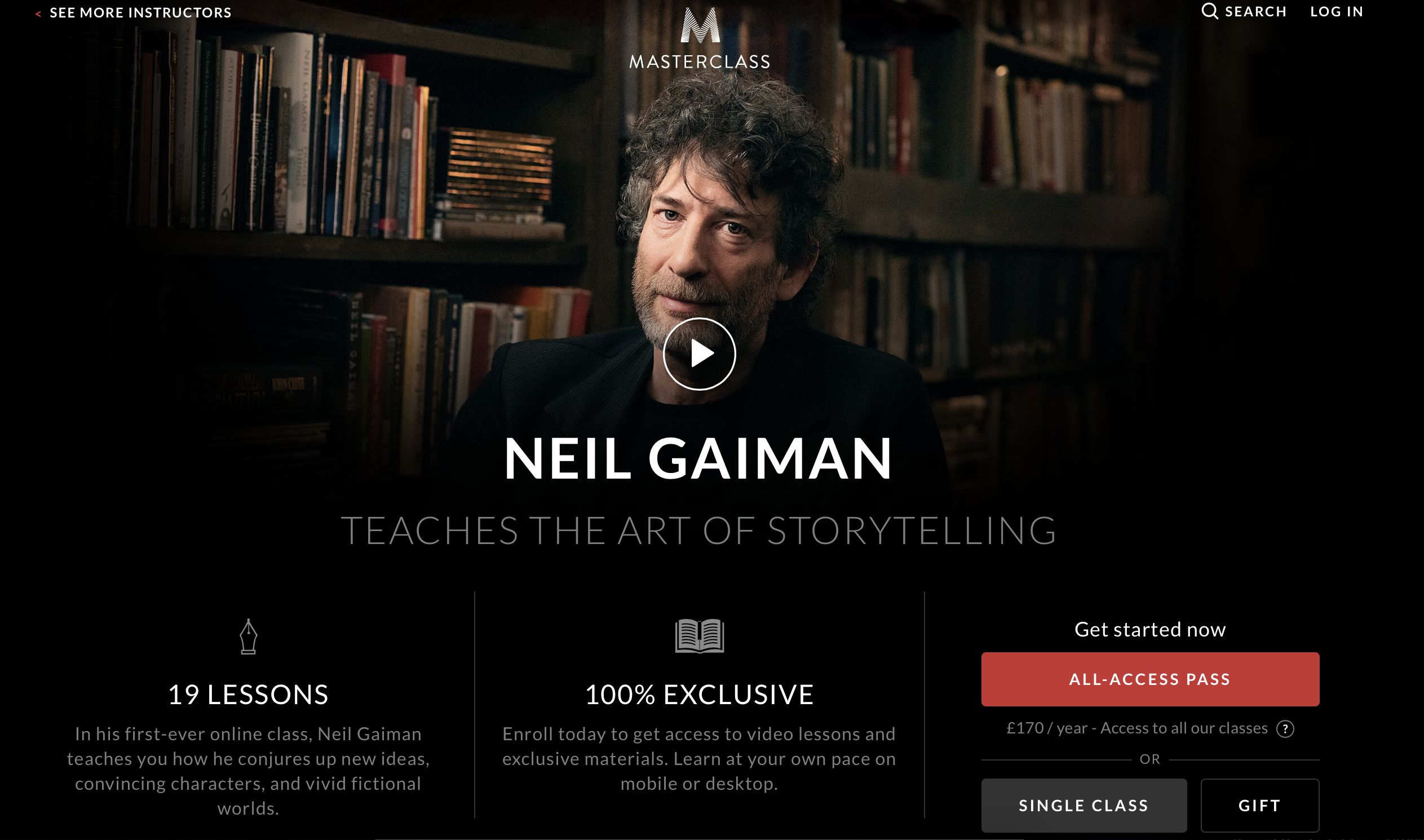
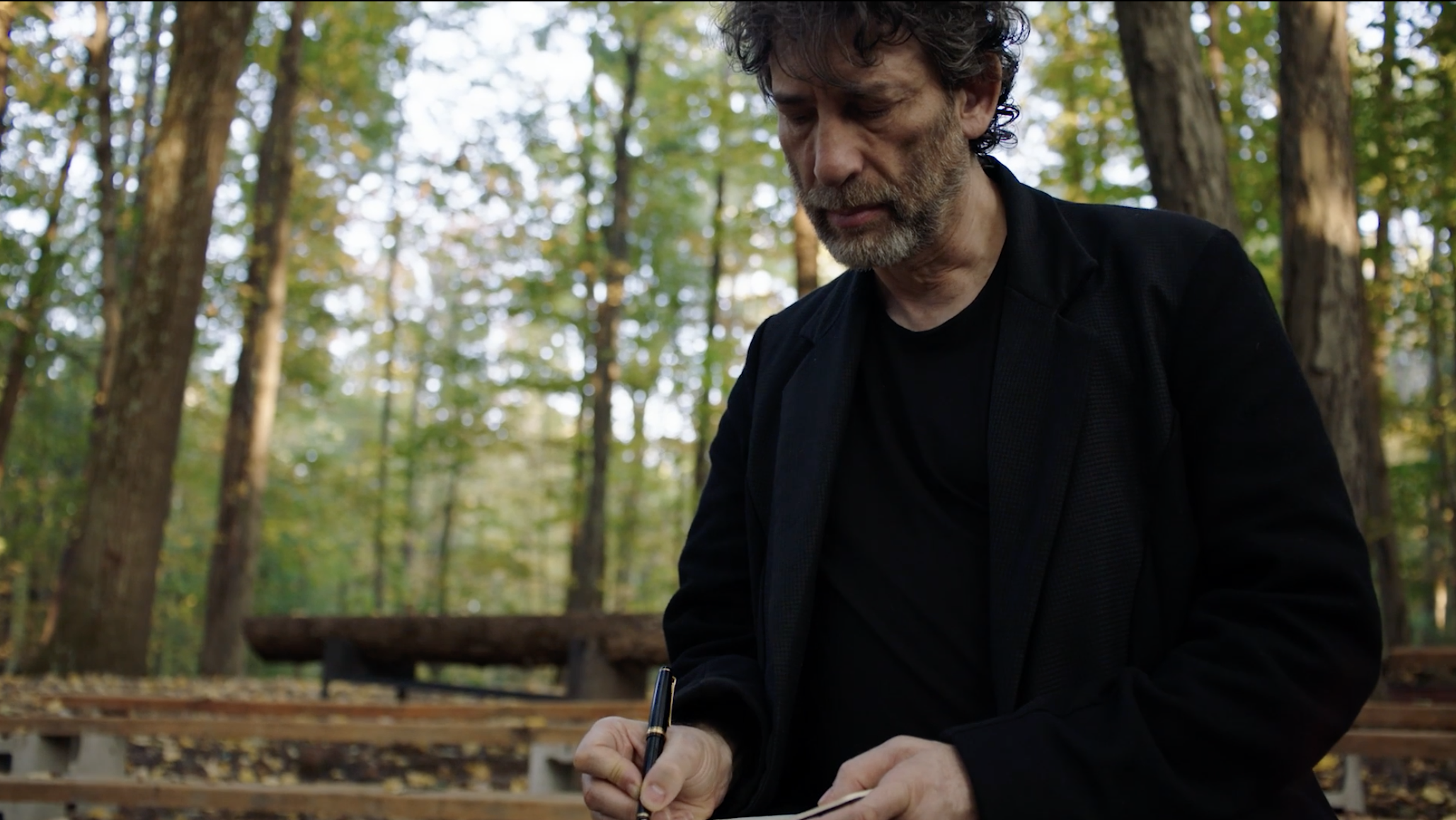
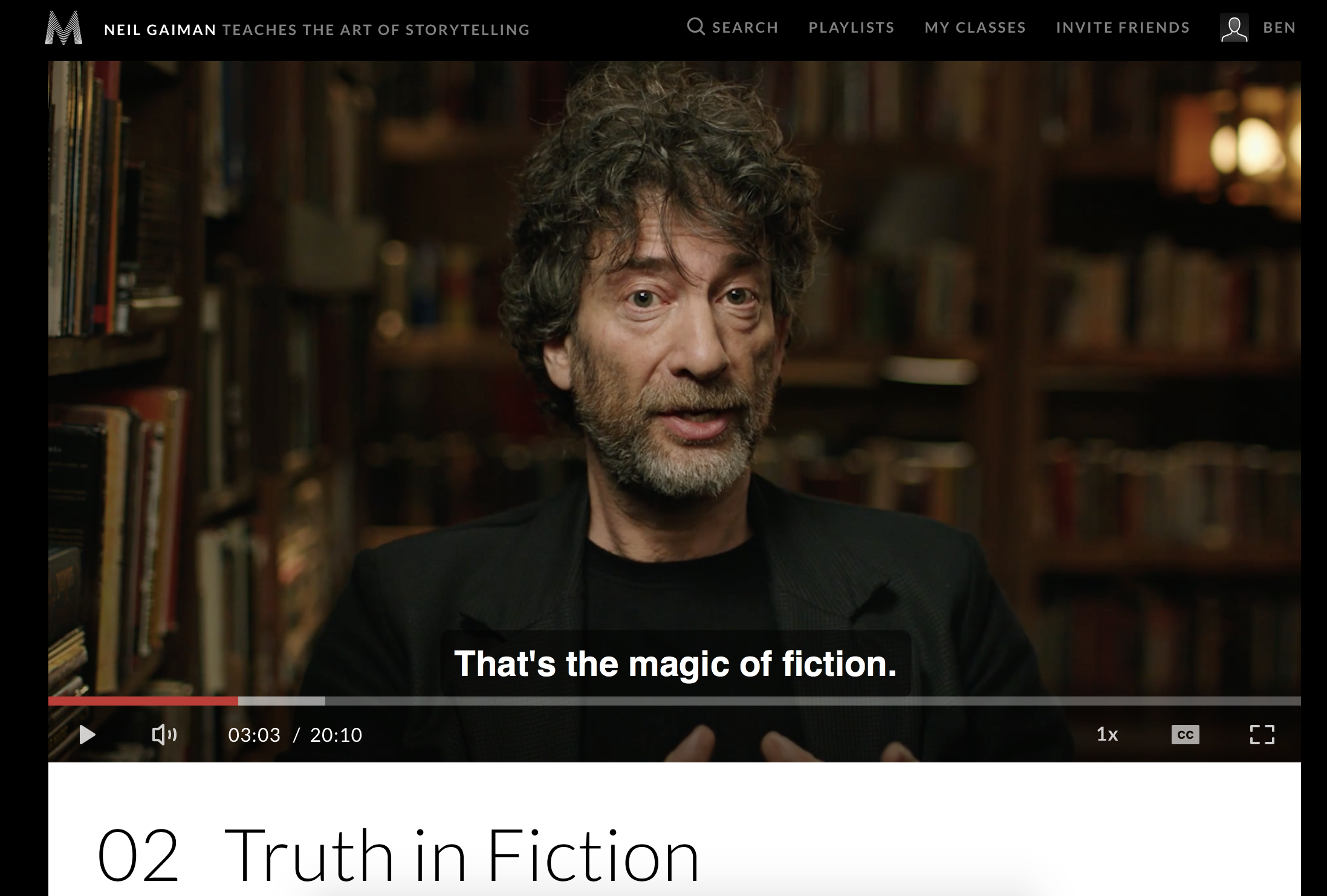
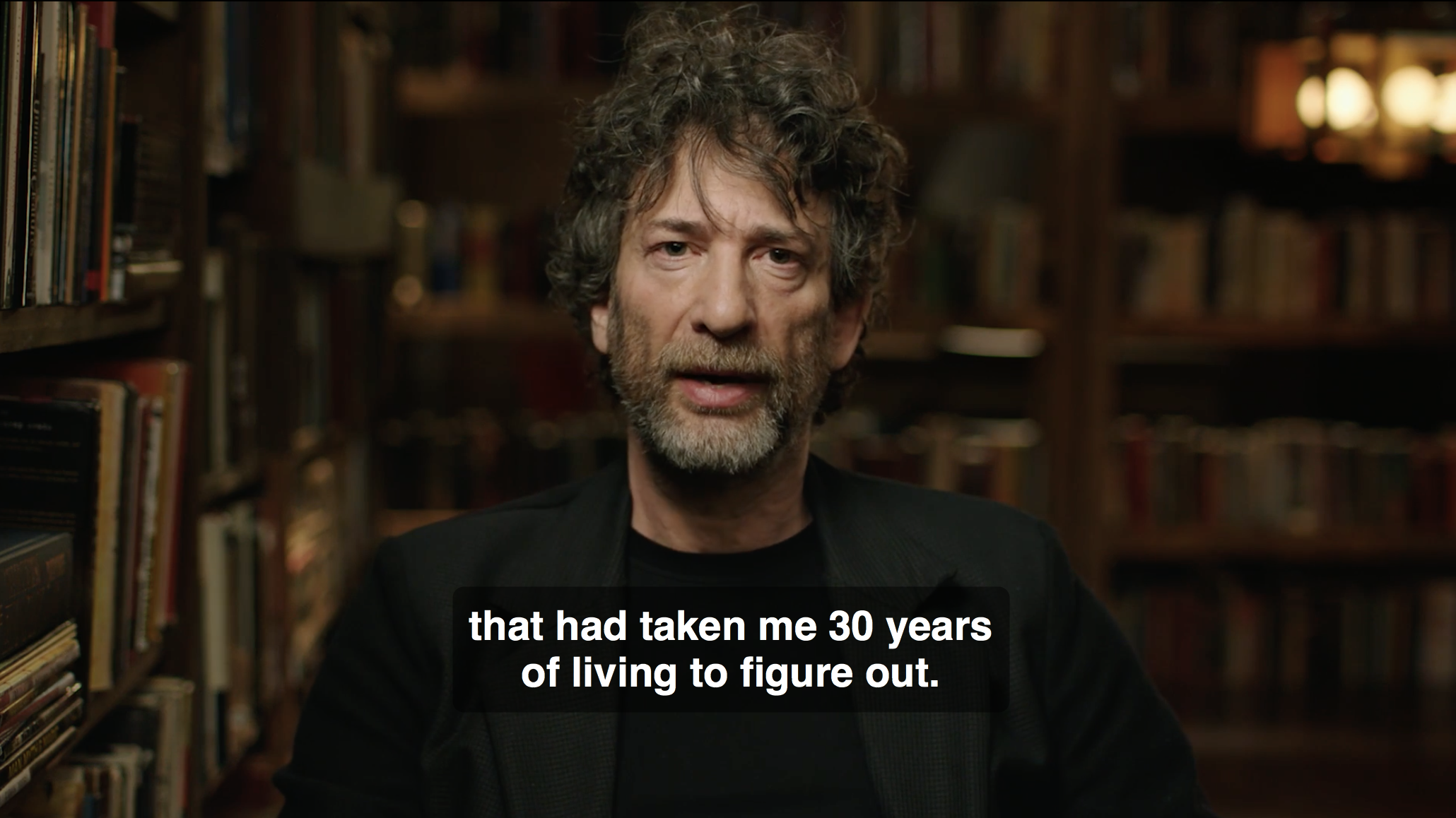
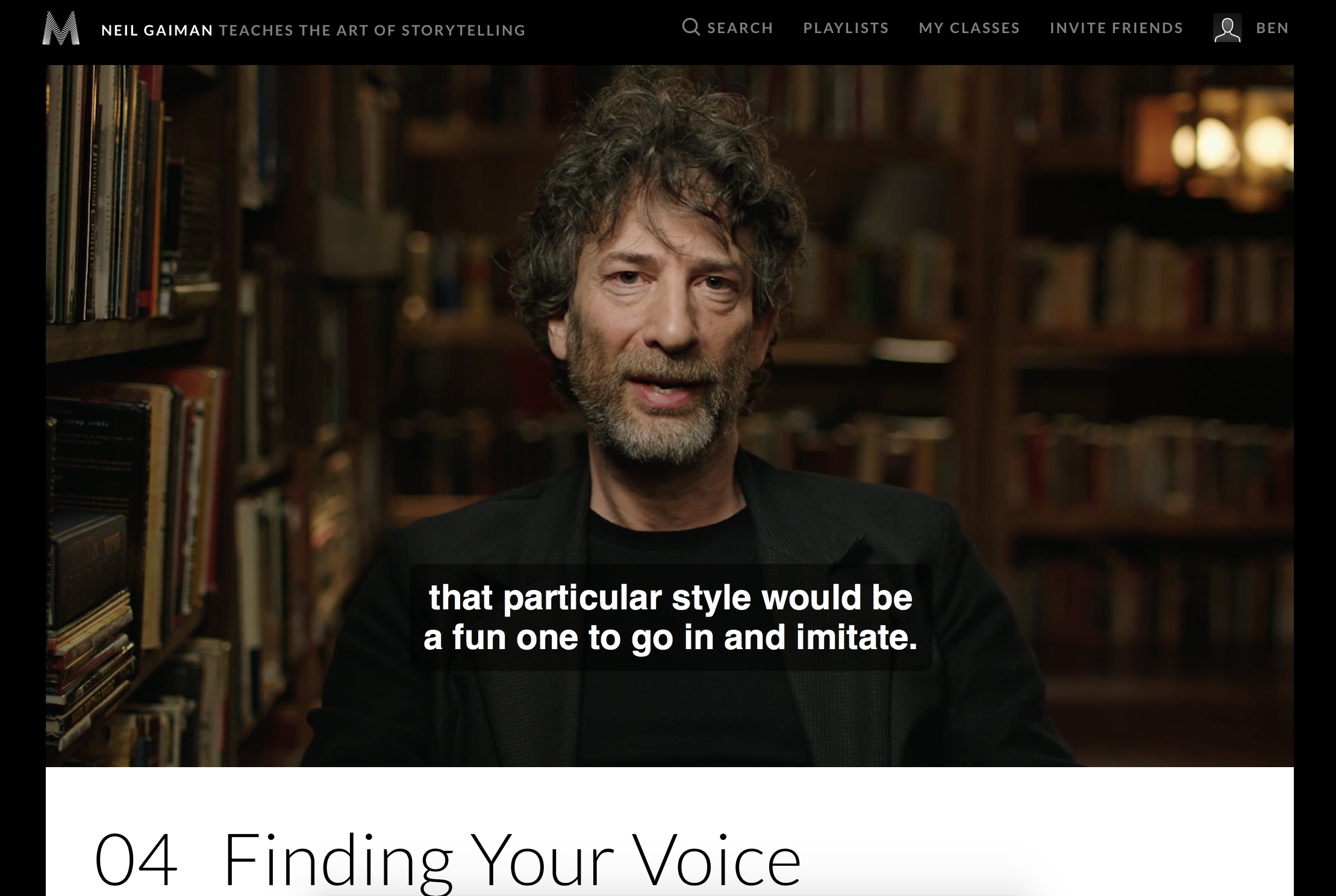
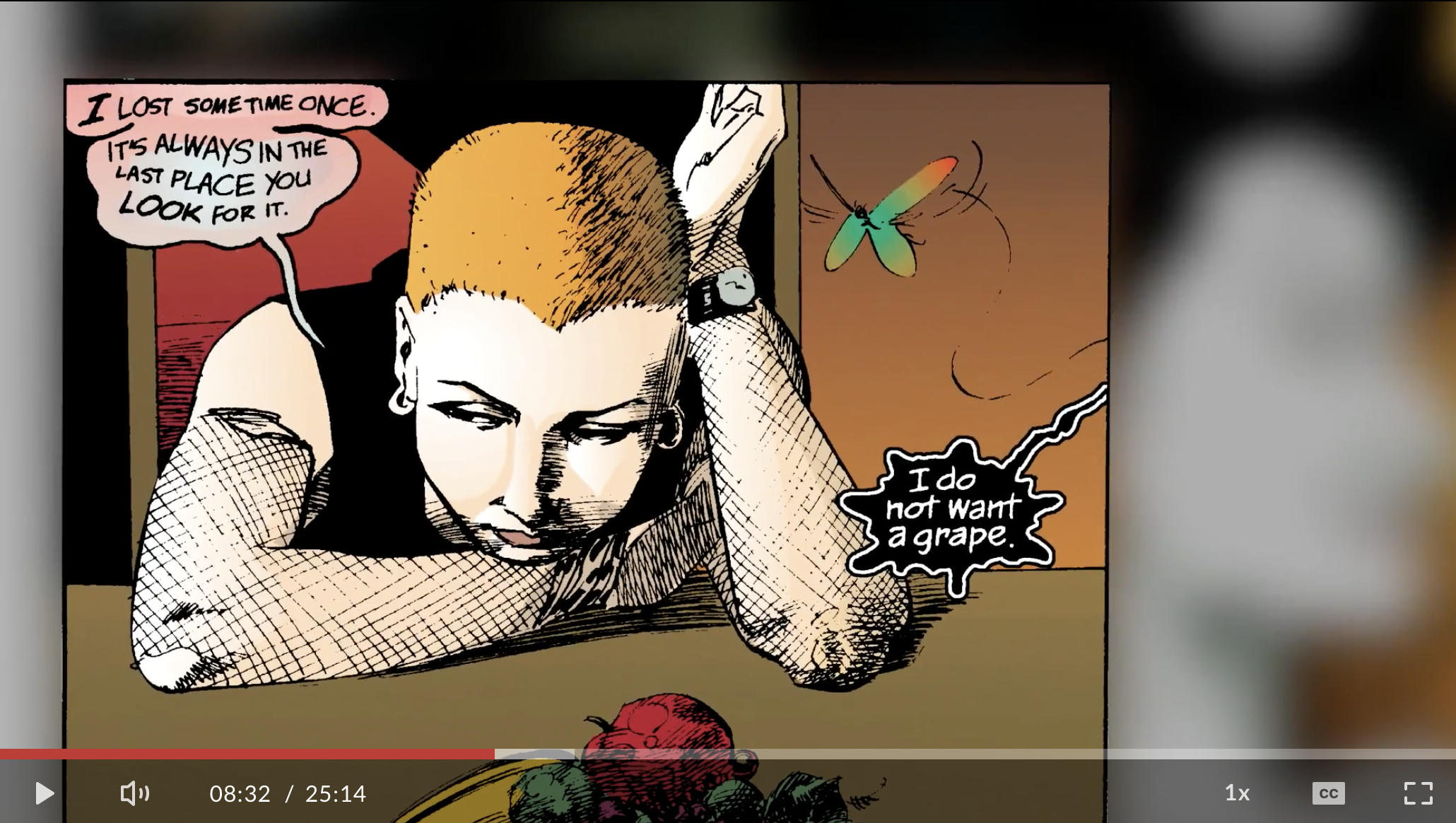
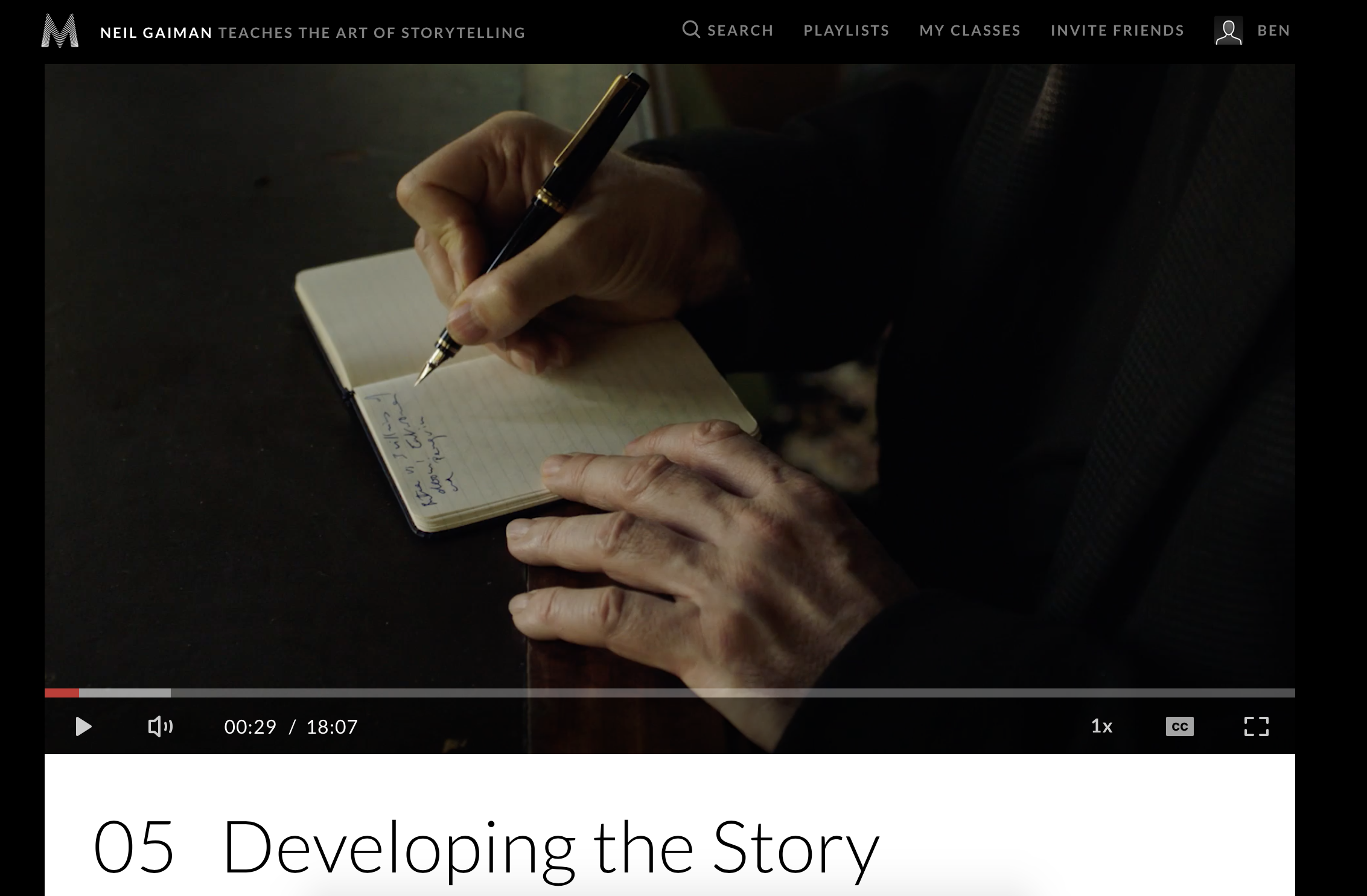
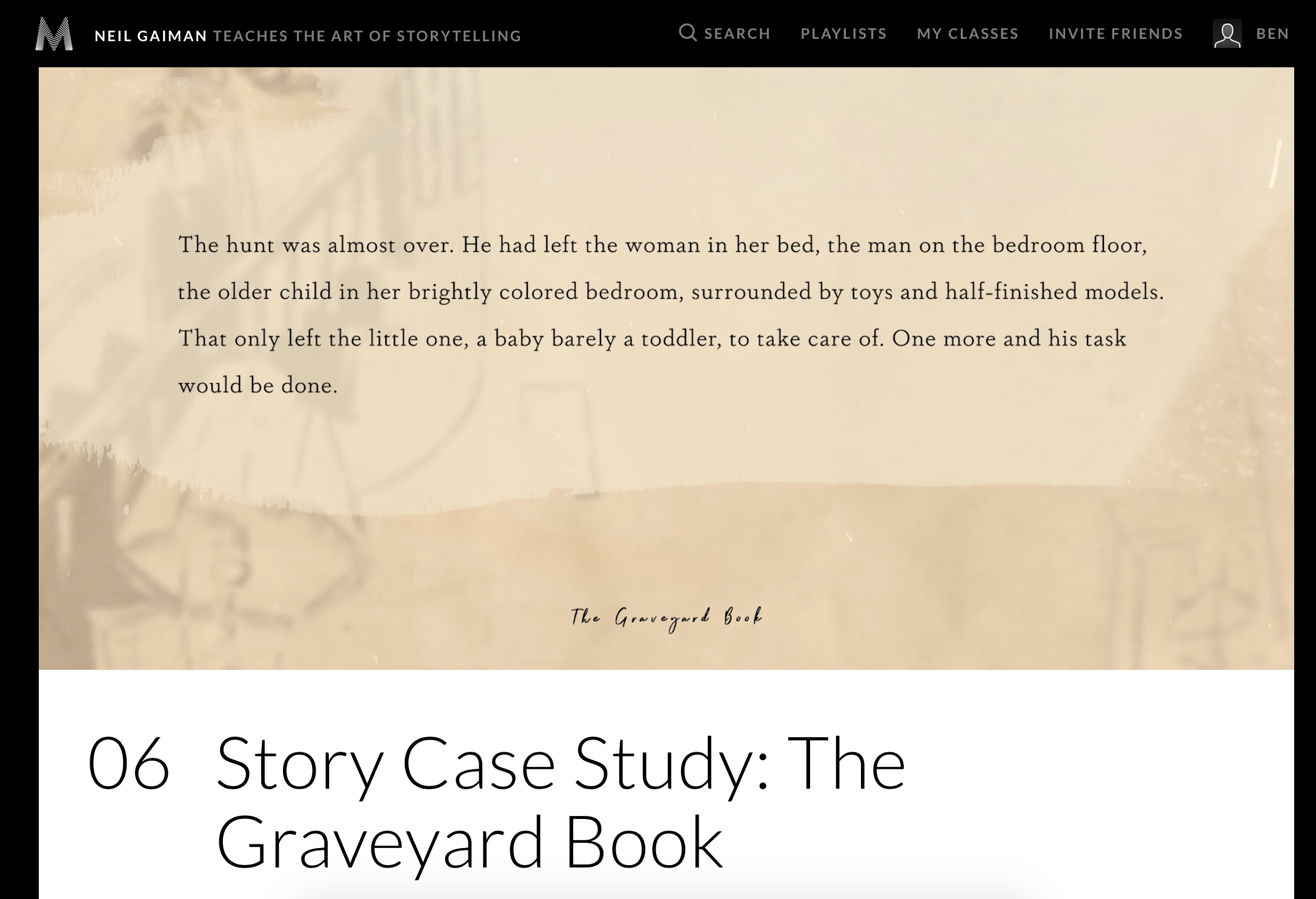
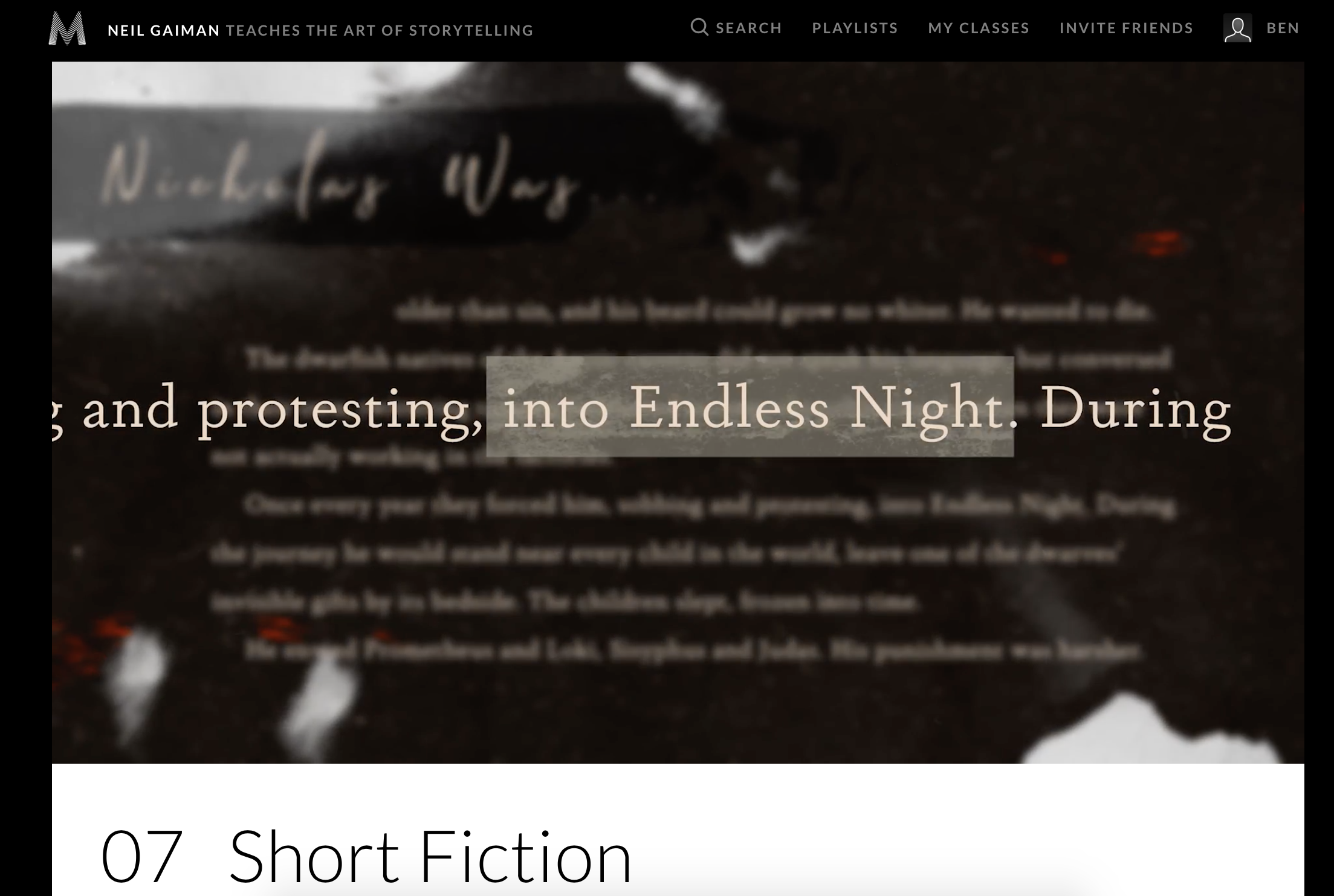
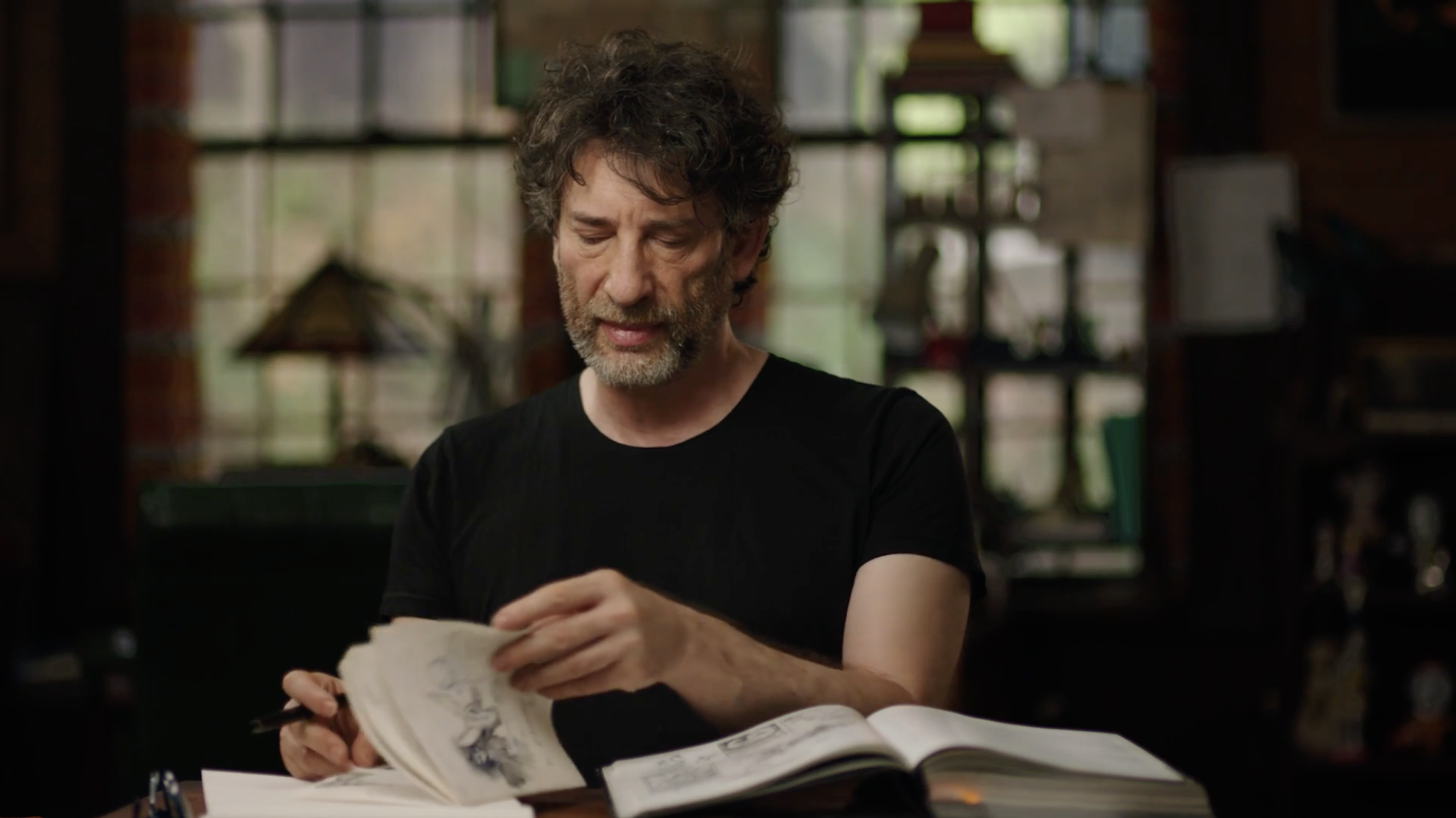
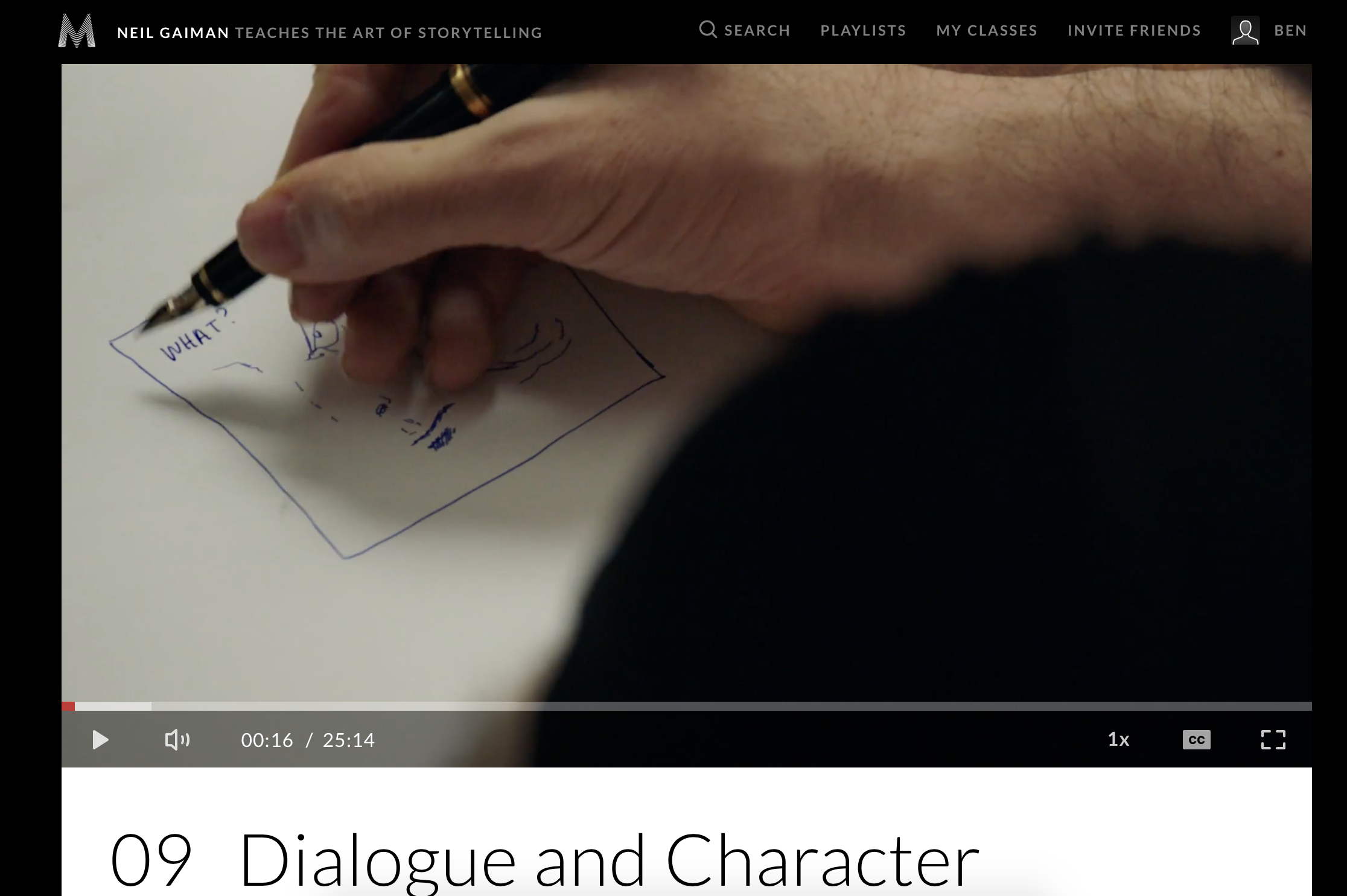
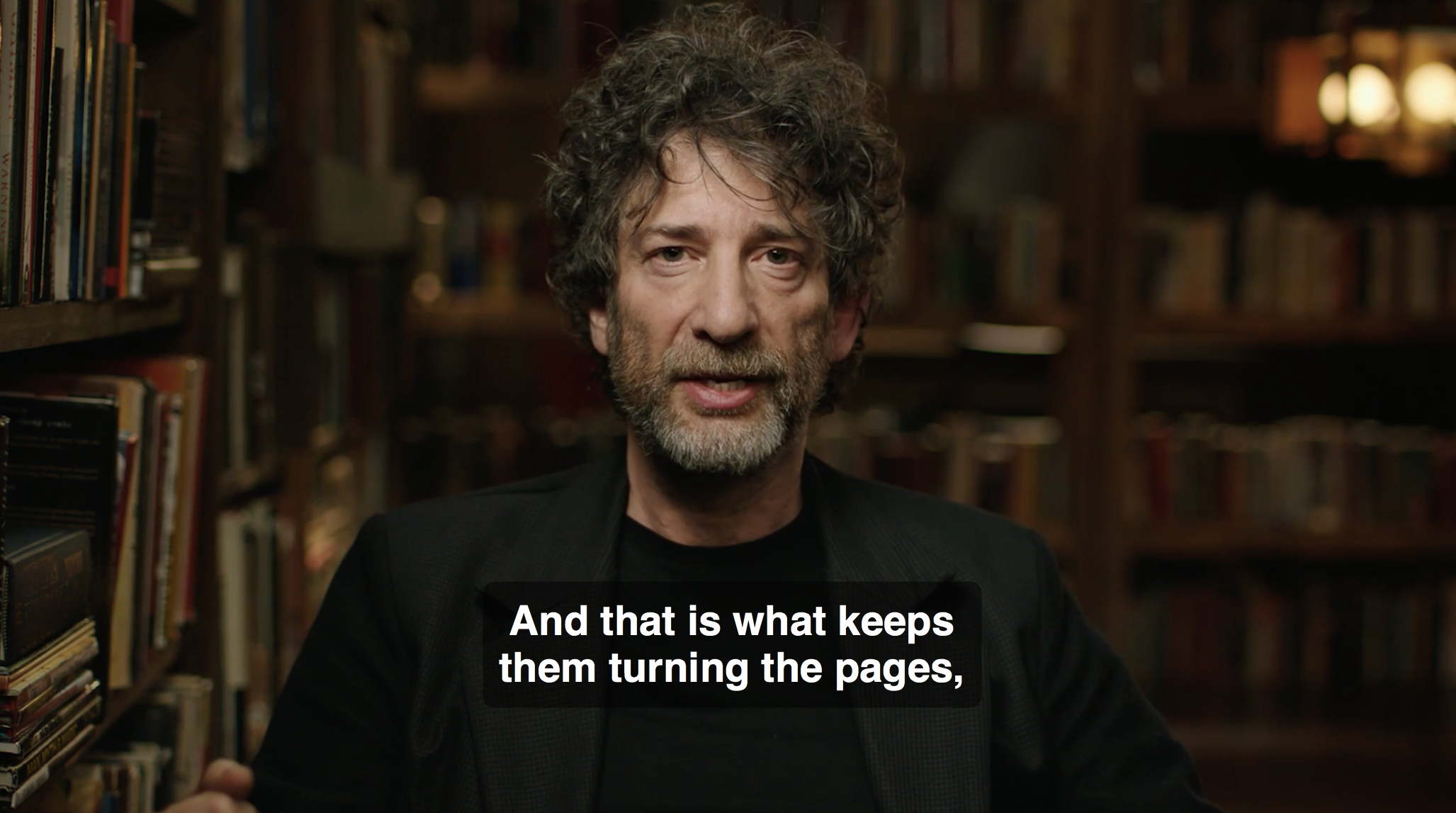
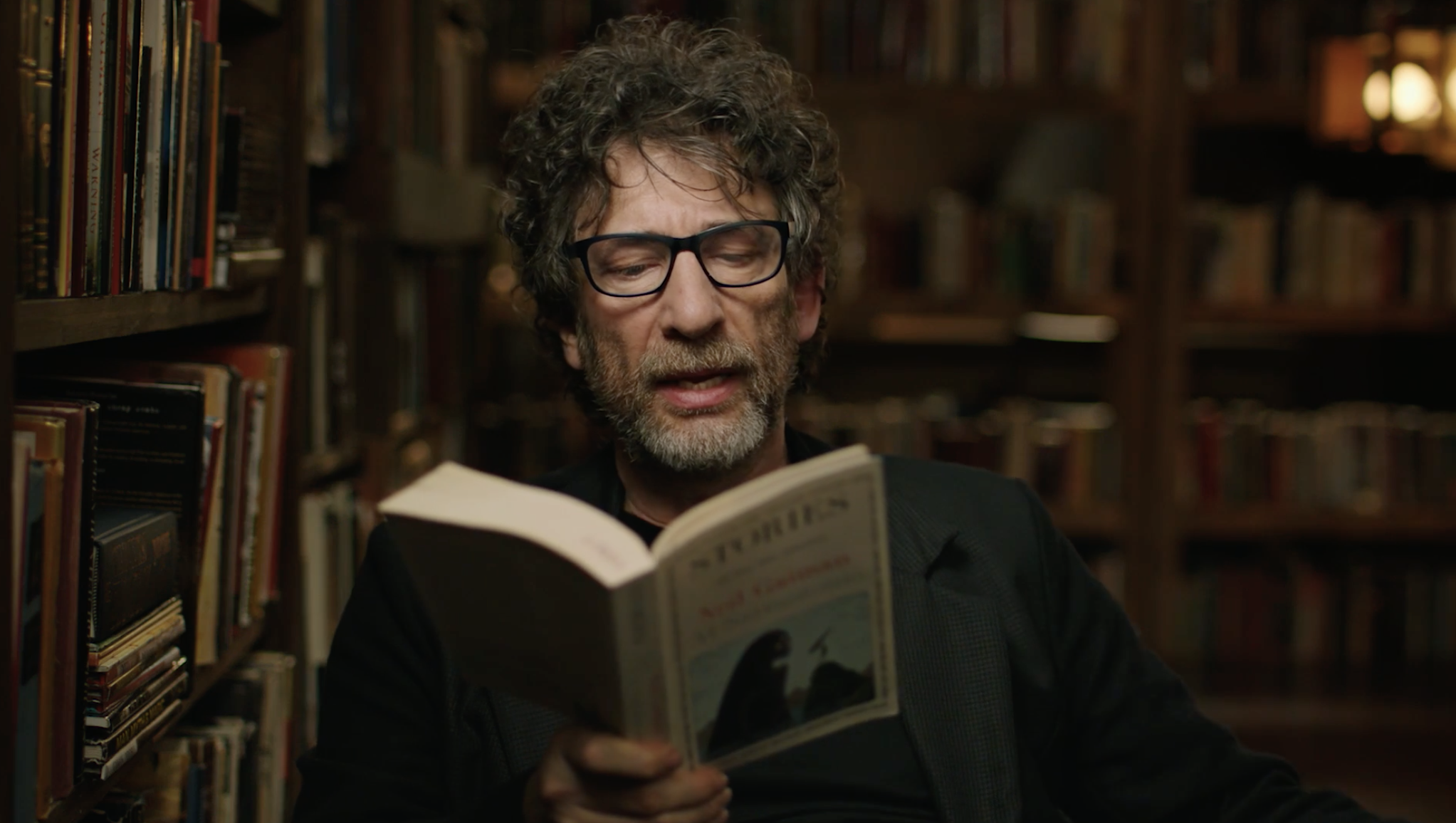
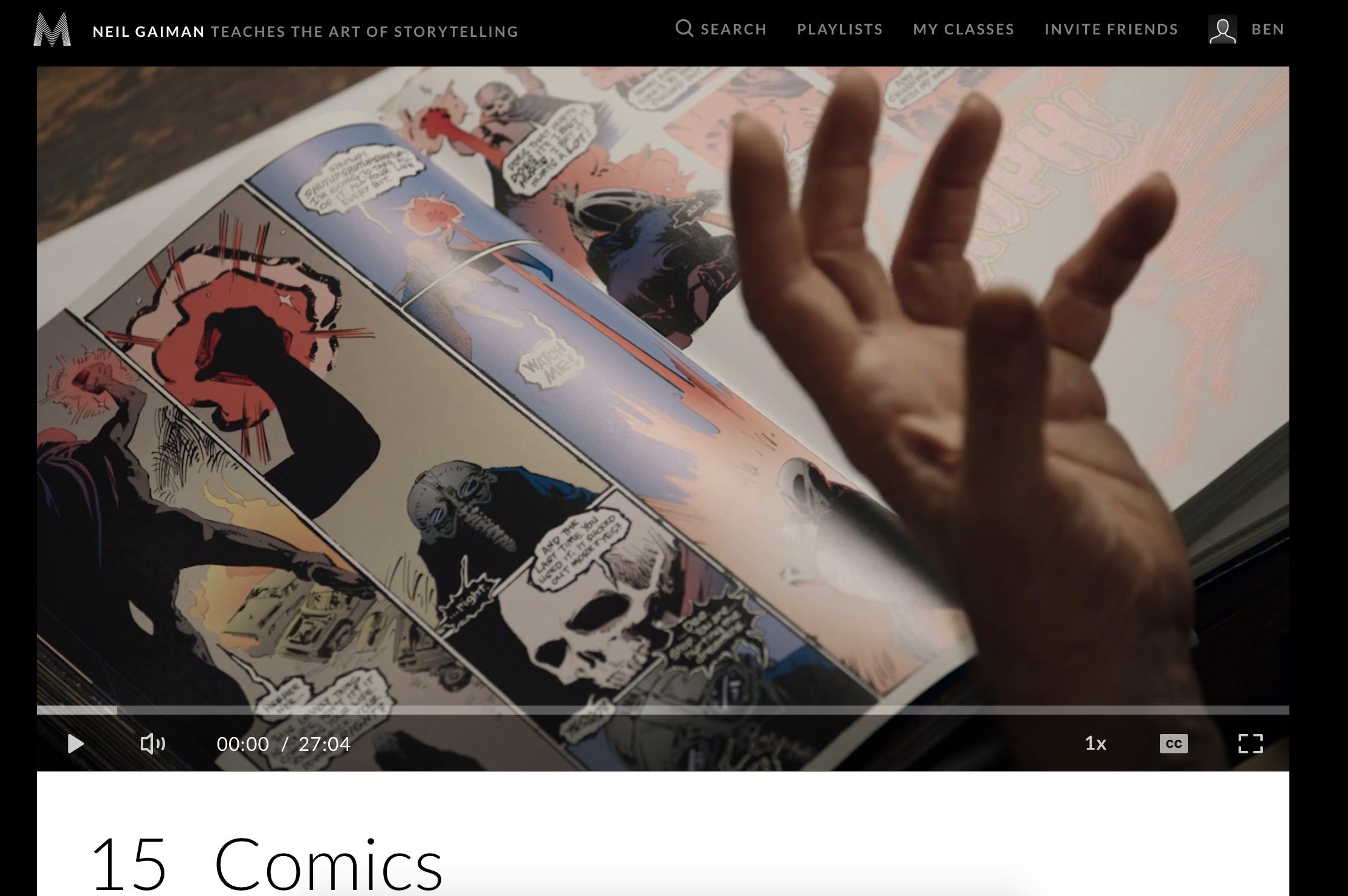
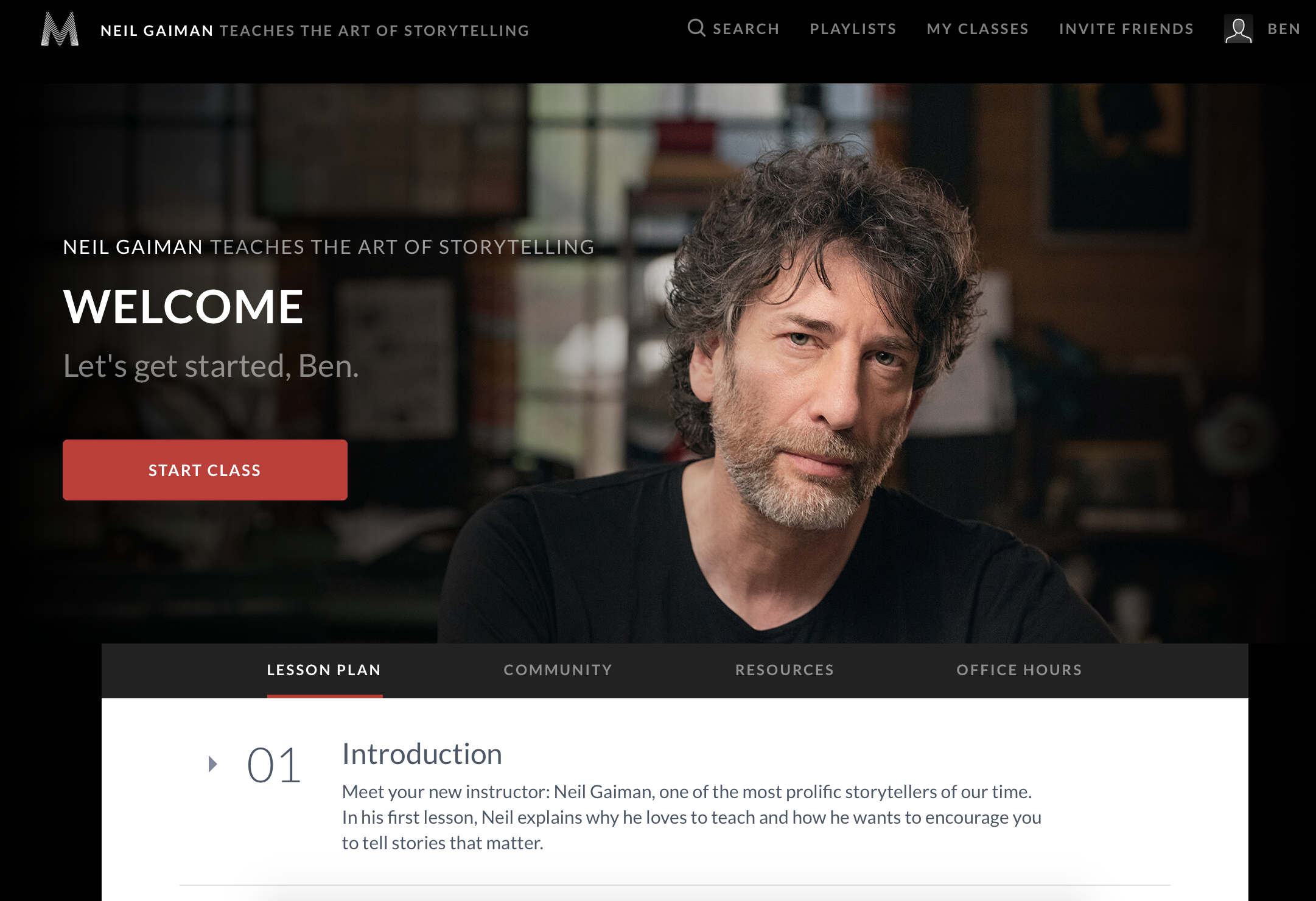
Hi Ben,
Thanks for the in-depth reviews! If you had to recommend one masterclass for each area (writing, filmmaking, etc) what would they be?
Difficult question!
For filmmaking, it’s tied between Werner Herzog and Ken Burns.
For writing, I can narrow it down to Neil Gaiman, Dan Brown, James Patterson, and R. L. Stine. Very tough to choose a top one between them, so I’d recommend based on what type of writing you want to go for. If it’s thrillers, go for Dan Brown. If Gaiman’s style is more up your street, than his course is a winner.
For acting, I’d personally recommend Helen Mirren.
For photography, I’d recommend Jimmy Chin’s MasterClass.
And for guitar/music, it has to be Tom Morello.
And two honourable mentions that I personally loved are the Garry Kasparov and Chris Hadfield masterclasses.
Having said that though, I really loved all of the masterclasses I’ve taken so far and got something from every one.